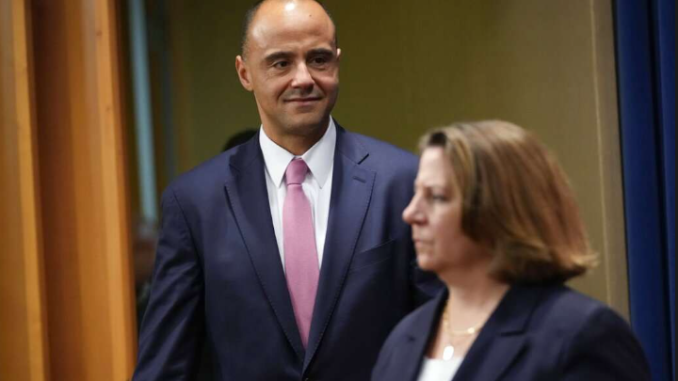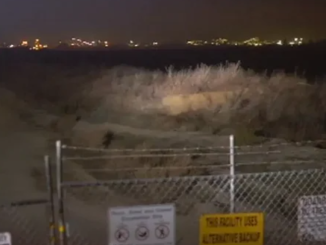
The U.S. attorney in Washington, D.C., declined to prosecute nearly 70% of people arrested by police officers in 2022, almost doubling the declination rate within the last seven years.
The statistics, originally published by the Substack newsletter DC Crime Facts, show that 67% of cases were not prosecuted, doubling from 2015, when the attorney’s office declined to prosecute 35% of cases.
U.S. Attorney Matthew Graves said in an interview with the Washington Post that there were several reasons for not prosecuting less serious criminal cases, such as an unaccredited crime lab and police body-camera footage leading to severe scrutiny.
Graves said his office has mostly declined to prosecute cases involving gun possession, drug possession, and burglary charges.
In 2021, the Department of Forensic Sciences lost its accreditation, forcing prosecutors to pay out-of-state labs to analyze DNA, firearm, and fingerprint evidence. Graves said prosecutors prioritize those requests for more violent crimes.
“We are now entering year three of DFS being shut down without any clear plan of coming back online. We have to prioritize violent felonies and make sure we are doing the forensic testing for those cases. Our office is often bearing the cost for this analysis,” he said.
Metropolitan Police Chief Robert Contee said his officers were not to blame for the lack of prosecutions.
“I can promise you, it’s not MPD holding the bag on this,” he told the Washington Post. “That’s B.S.”
While the U.S. attorney’s office prosecutes both locally based crimes within the district area in Superior Court and federal cases in the U.S. District Court, its declination rate of 67% is high compared to other crime-emboldened cities such as Philadelphia and Chicago. Data from the offices indicate that Philadelphia prosecutors declined 4% and Chicago prosecutors in Cook County declined 14%.
“Of course we are concerned,” Washington’s police chief said of the declining prosecution rates. “We believe every person we arrest should be off the streets.”
These numbers come as Washington grapples with rising crime rates and attention from federal lawmakers over the district’s ability to govern itself and administer the criminal code.
Following a trend across the United States, violent crime rates in the district are shifting downward, while lesser crimes, such as property and motor vehicle theft and robberies, have increased dramatically, with rates yet to subside to pre-pandemic levels.
In Washington, homicides have increased by 19% compared to this time in 2022, and violent crime is just 1% above the level in 2022. However, motor vehicle theft has increased by 108%, and property crime has increased by 27%. As of Wednesday, crime is up in the district by 22% compared to last year.
The Council of the District of Columbia recently sought to pass a crime bill that would have overhauled Washington’s century-old criminal code and reduced the penalties for some crimes, including homicide. The House voted to overturn the bill on Feb. 9, and the Senate also voted against the bill on Mar. 8. President Joe Biden, who said he would not veto the bill if it came to his desk, signed the legislation a few days after.
Graves said the declining numbers stem from his office deciding against prosecuting those arrested on suspicion of gun possession, drug possession, and burglaries, which has actually decreased 22% in Washington. Last year, he said the district attorney’s office prosecuted 87.9% of arrests made in homicides, armed carjackings, first-degree sexual assaults, and assault with intent to kill.
That percentage of prosecuted cases is higher than it was in 2021, at 85.7%, but lower than the 95.6% of cases prosecuted in 2018, per data provided to the Washington Post.
“The bottom line is that it creates the impression that this is an across-the-board decrease in the number of cases we are bringing. That is simply not true,” Graves said.
Graves added that body-worn camera footage from police officers has contributed to the declining prosecution rates, as the gathered information can allow prosecutors at an earlier stage to review whether a crime has been committed and can prevent court proceedings that are not necessarily needed.
“Since 2019, we have been taking more time at arrest to determine if we are going to file charges. With body-worn camera and the proliferation of surveillance cameras, we have more information at the charging stage to assess the strength of the evidence we would be presenting later to courts and juries,” Graves said.
However, Contee believes that prosecutors may also be not as willing to push a case if they have concerns about witnesses.
“But those are often the very individuals who witness such crimes. We can’t pick our witnesses, especially in neighborhoods where these crimes are happening. I wish we could have boy and girl scouts as witnesses, but that’s often just not the case,” he said.
Deborah Sines, a retired federal homicide prosecutor, told the Washington Post that the U.S. attorney’s office is burdened by both “poor police work” and officials “who only want to try slam-dunk cases.”
“I would get angry when I would see defendants in homicide cases in front of me who had previous gun possession charges that a prosecutor had previously dismissed. Some cases are going to be challenging, yes. But that’s your job. Do your job. Don’t just dismiss it just because the evidence is not everything you want it to be or think it should be,” she said.
* Article From: The Washington Examiner


